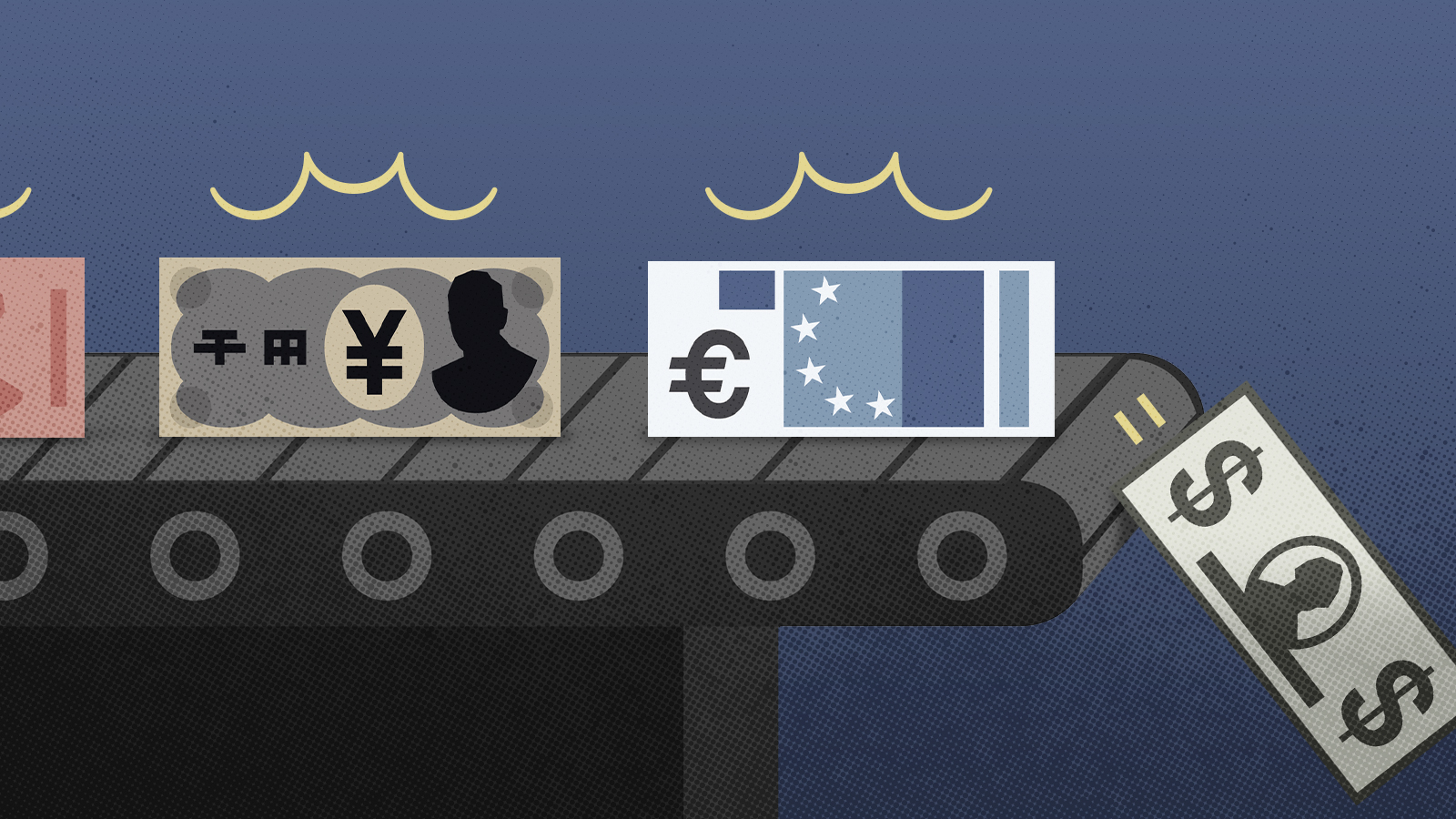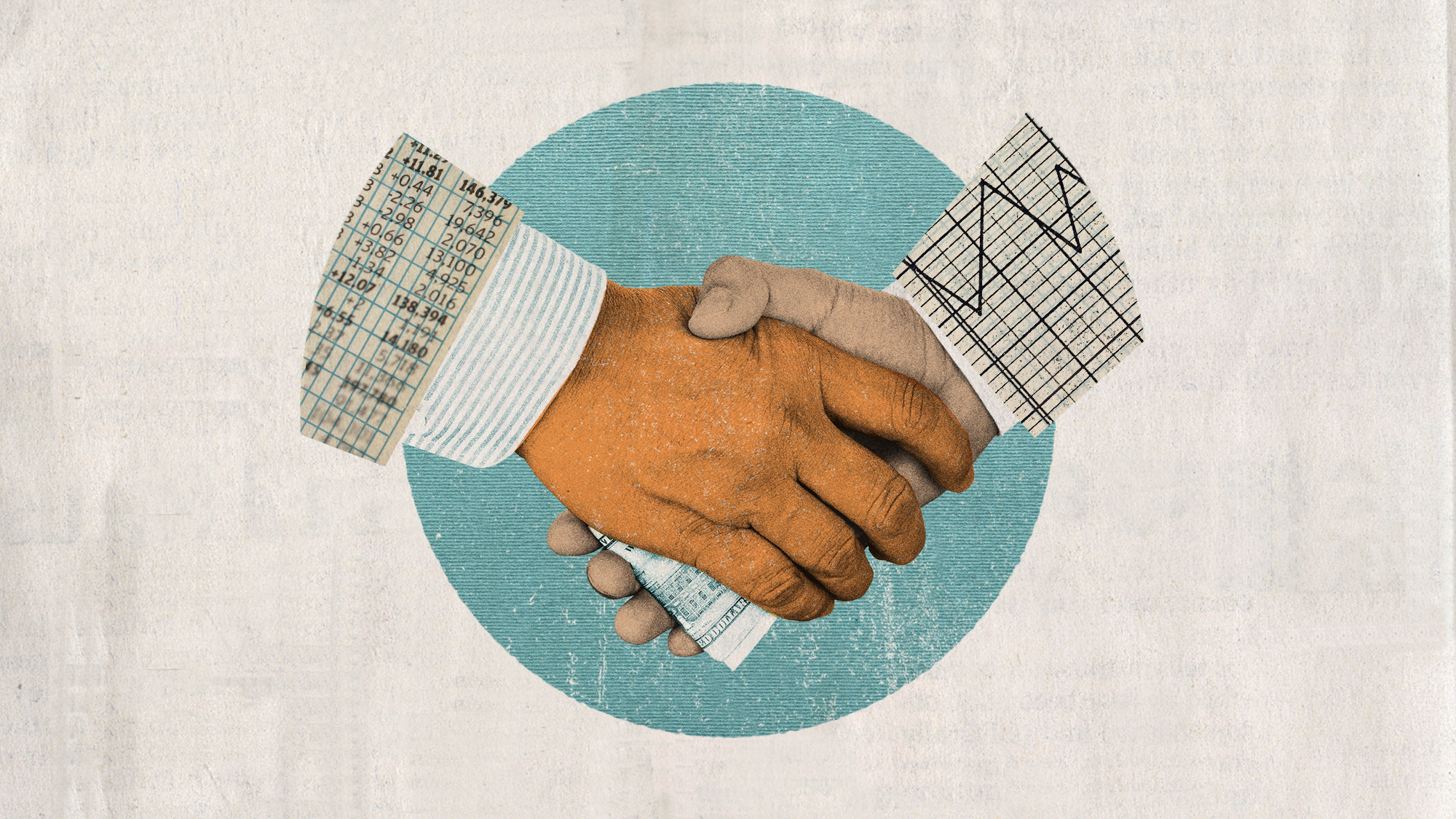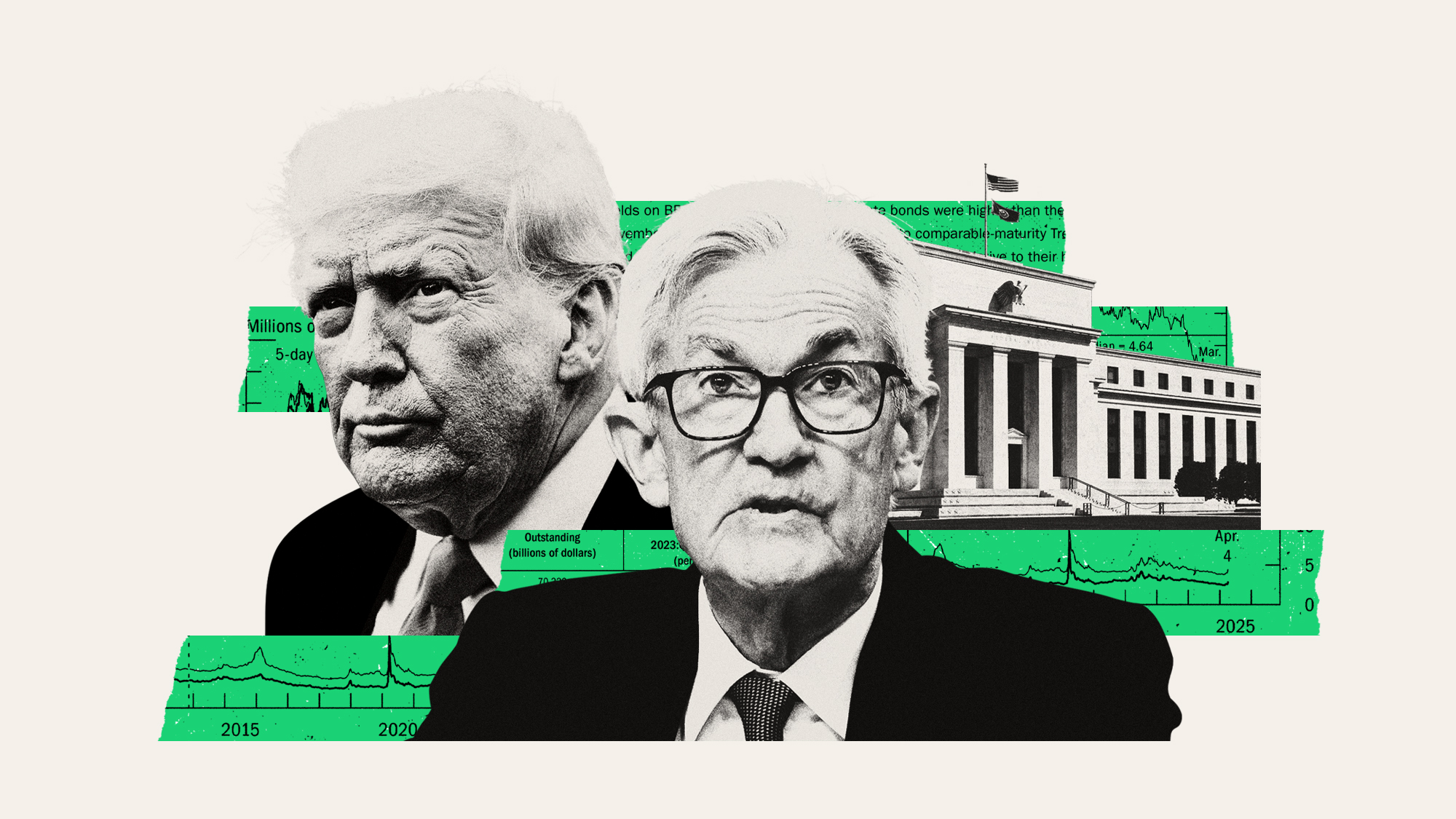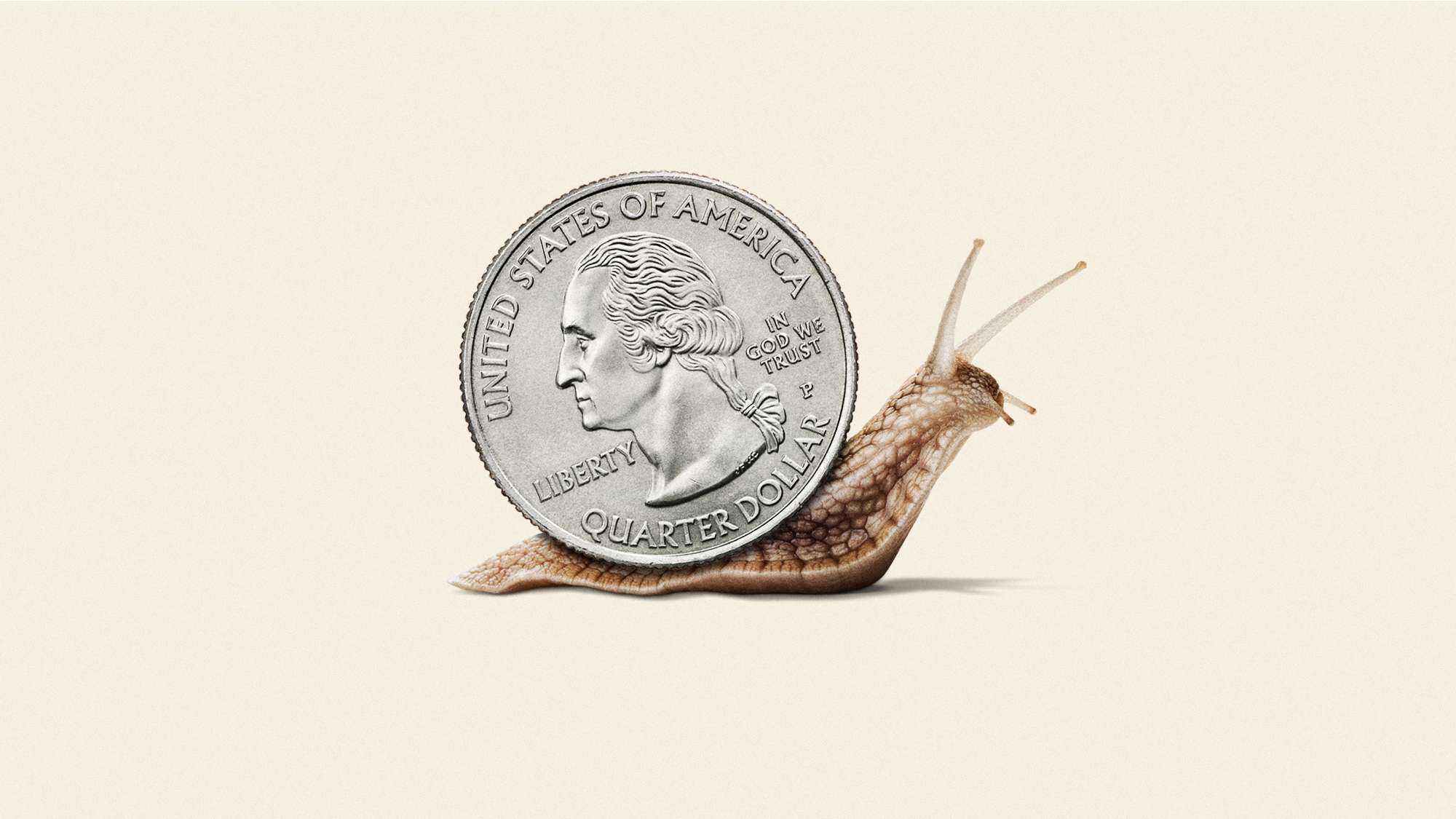The quick economic recovery we were promised isn't coming


A free daily email with the biggest news stories of the day – and the best features from TheWeek.com
You are now subscribed
Your newsletter sign-up was successful
In the initial weeks and months of the COVID-19 pandemic, economic forecasters talked of a V-shaped recovery — a quick bounce back roughly to where we were before lockdowns and quarantines became the order of the day. We'd shut down much of the world, but things would return to normal as soon as we opened back up.
It turns out recovering economically from a pandemic is more complicated than we thought.
On Tuesday, the International Monetary Fund (IMF) lowered its growth forecasts, just modestly for the world as a whole (from 6 to 5.9 percent), but more substantially for the advanced economies of the United States (6 percent instead of 7), Germany (3.1 percent instead of 3.6), and Japan (2.4 percent instead of 2.8).
The Week
Escape your echo chamber. Get the facts behind the news, plus analysis from multiple perspectives.

Sign up for The Week's Free Newsletters
From our morning news briefing to a weekly Good News Newsletter, get the best of The Week delivered directly to your inbox.
From our morning news briefing to a weekly Good News Newsletter, get the best of The Week delivered directly to your inbox.
The cause? There are several: The highly contagious Delta variant of the virus has put a damper on the speed of economic recovery; as demand has surged back to pre-pandemic-levels, it has contributed to rising inflation around the world; and, relatedly, supply-chain bottlenecks are slowing the delivery of goods to producers as well as consumers.
The IMF forecasts supply-chain problems will ease over the next year, opening up the possibility of more robust growth down the road. But there remains the problem of low vaccination rates in the developing world, which could well create a two-track global economy and a more persistent and longer-lasting slowdown.
And that shows that the world — very much including the U.S. — remains in an economically precarious place. The V-shaped recovery hasn't materialized. What we've had, instead, is a partial bounce-back. That's helped us to avoid a worldwide depression. But it's left us in painfully familiar territory resembling the slow recovery that followed the 2008 financial crisis more than it looks like what most analysts expected 18 months ago.
The reasons for the 2008 and 2020 downturns and the slow pace of each recovery are very different, but the effect is similar: an initial sharp drop in growth and employment followed by a partial bounce back that stalls out, with a full return to baseline taking years. That kind of recovery looks less like a V than it does a square-root symbol or a Nike swoosh.
A free daily email with the biggest news stories of the day – and the best features from TheWeek.com
Whatever we choose to call it, it's not especially encouraging. Our recovery from the pandemic still has a way to go.
Damon Linker is a senior correspondent at TheWeek.com. He is also a former contributing editor at The New Republic and the author of The Theocons and The Religious Test.
-
 The environmental cost of GLP-1s
The environmental cost of GLP-1sThe explainer Producing the drugs is a dirty process
-
 Greenland’s capital becomes ground zero for the country’s diplomatic straits
Greenland’s capital becomes ground zero for the country’s diplomatic straitsIN THE SPOTLIGHT A flurry of new consular activity in Nuuk shows how important Greenland has become to Europeans’ anxiety about American imperialism
-
 ‘This is something that happens all too often’
‘This is something that happens all too often’Instant Opinion Opinion, comment and editorials of the day
-
 Trump wants a weaker dollar, but economists aren’t so sure
Trump wants a weaker dollar, but economists aren’t so sureTalking Points A weaker dollar can make imports more expensive but also boost gold
-
 Can Trump make single-family homes affordable by banning big investors?
Can Trump make single-family homes affordable by banning big investors?Talking Points Wall Street takes the blame
-
 Is a financial market crash around the corner?
Is a financial market crash around the corner?Talking Points Observers see echoes of 1929
-
 Trump wants to revive coal. Will it work?
Trump wants to revive coal. Will it work?Talking Points Wind, solar and natural gas are ascendant
-
 Is Trump America's CEO?
Is Trump America's CEO?Talking Points The party of free enterprise turns to 'cronyism'
-
 Trump's threats to fire Jerome Powell are unsettling the markets
Trump's threats to fire Jerome Powell are unsettling the marketsTalking Points Expect a 'period of volatility' if he follows through
-
 Rich people are 'powering' America's economy
Rich people are 'powering' America's economyTalking Points The income gap sets a new record
-
 Why is the threat of stagflation rising?
Why is the threat of stagflation rising?Talking Points Inflation is sticky. Trump's tariffs won't help.
